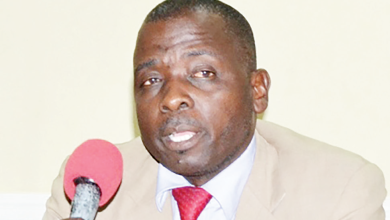Malawi earns K150m from trading in carbon credit
Malawi has earned K150 million from carbon credit trading through projects under the Green Development Mechanism and Reducing Emissions from Deforestation and Degradation (Redd+) programme.
Data from the Ministry of Natural Resources and Climate Change also quoted in the Nico Asset Managers Monthly Economic Report for August shows that the funds were realised from the sale of about 75 000 carbon credits.

Reads the report in part: “The government has been implementing green initiatives to mitigate implementation of climate change through the Redd+ programme.
“This has resulted in the generation of 1.5 million carbon credits, of which only 75 000 have been sold.”
This is coming at a time the Ministry of Natural Resources and Climate Change said carbon credit initiative in Malawi has the potential to generate $600 million (about K1.05 trillion) annually.
In an interview on Tuesday, Parliamentary Committee on Natural Resources and Climate Change chairperson Werani Chilenga said the committee is not impressed with the amount realised, adding that the figures are below the current economic potential.
He attributed this to lack of a legal framework to regulate and sanitise the industry which he said has left the sector less attractive to serious players.
Said Chilenga: “Although we are welcoming the reported figures, as a committee, we still think we are underutilising the available opportunity to tap from carbon trading.
“As we speak, we don’t have the Carbon Credit Act to regulate the sector and if we have any policy I have not seen it.”
Self Help Africa energy programme manager Will Coley earlier emphasised the need for further development and implementation of carbon pricing schemes for the country to achieve ambitious climate goals.
He said: “Finally, the system needs to be equitable. This means that local communities who are impacted by carbon projects should have a say in how things are done.
“They should also receive a fair share of benefits, both financial and social.”
Vice-President Michael Usi, who is also Minister of Natural Resources and Climate Change, said in an earlier interview that government has developed Article 6 Framework for International Carbon Market Engagement, a requirement under the Climate Change Convention for countries to use when transacting on the carbon market.
Last year, President Lazarus Chakwera mentioned carbon credits as one of Malawi’s potential game changers, a pathway for the country to generate much-needed foreign exchange and restore Malawi’s degraded forests.
He said Malawi can leverage its forest reserves and other land resources to generate an estimated 19.9 metric tonnes of carbon dioxide valued at over $600 million (about K1.05 trillion), which it can then sell in international carbon markets through carbon offset programmes.
Carbon offset programmes or carbon financing are financial mechanisms and incentives designed to support projects that reduce greenhouse gases (carbon dioxide and methane) or remove carbon dioxide from the atmosphere.





